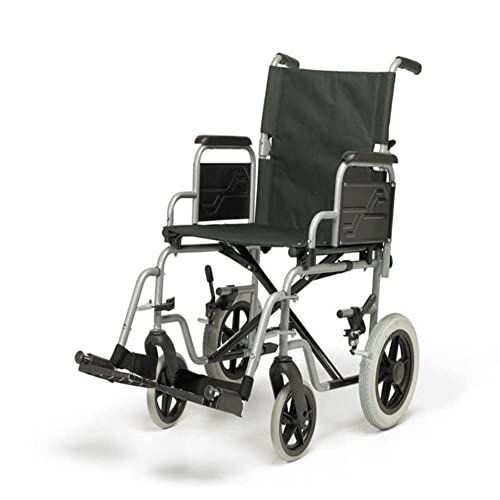Understanding Mobility Scooters: A Comprehensive Guide
Mobility scooters have become a necessary tool for individuals who face mobility challenges, supplying independence and a means of transport. They are designed to help users in navigating different surfaces, whether inside or outdoors, enabling them to engage more fully in day-to-day activities. This article will check out the types of mobility scooters, their functions, benefits, and factors to consider for prospective users.
What is a Mobility Scooter?
A mobility scooter is a motorized lorry made for individuals with physical restrictions. It assists users keep their mobility and self-reliance, offering a reliable ways of transportation over short distances. While buy mobility scooters might look comparable to small electric lorries, mobility scooters are usually powered by batteries, with controls developed for ease of use.
Types of Mobility Scooters
There are several kinds of mobility scooters readily available in the market, each developed to deal with various requirements and preferences. Here's a breakdown of the most typical types:
| Type of Mobility Scooter | Description | Best For |
|---|---|---|
| Three-Wheeled Scooters | These scooters provide exceptional maneuverability and small turning radius however may do not have stability. | Indoor use and tight spaces. |
| Four-Wheeled Scooters | Often more steady than three-wheeled designs, these scooters are best for outdoor use. | All-terrain travel and outside activities. |
| Portable Scooters | Lightweight and collapsible, these scooters are developed for easy transport. | Travelers and people with limited storage area. |
| Durable Scooters | Constructed for larger users, these are robust and can manage heavier weights, typically geared up with much better battery life. | Users requiring extra assistance and stability. |
| Feature-Rich Scooters | These might include innovative innovation such as Bluetooth connectivity, integrated GPS, and adjustable seating. | Tech-savvy users searching for convenience and benefit. |
Key Features of Mobility Scooters
When choosing a mobility scooter, buyers ought to think about numerous necessary features. The following list describes crucial factors that can considerably influence their experience:
- Weight Capacity: Understanding the scooter's weight limit is crucial to guarantee security and efficiency.
- Battery Life: A longer battery life equates to more extended use between charges, which is crucial for prolonged journeys.
- Speed: Typical mobility scooters can reach speeds between 4 to 8 miles per hour, however it's necessary to select one that fits the user's needs.
- Comfort: Look for adjustable seats, armrests, and backrests that enhance the overall riding experience.
- Portability: If traveling frequently, a lightweight and collapsible scooter is helpful.
- Surface Capability: Some scooters are much better geared up for rough terrains, while others work best on smooth surfaces.
Advantages of Using Mobility Scooters
Mobility scooters provide numerous advantages that can substantially enhance users' quality of life. These include:
Increased Independence
Many people who have problem with mobility depend on family or caregivers for transport. Mobility scooters empower users to move about freely and carry out errands on their own, fostering a sense of independence and self-sufficiency.
Boosted Quality of Life
Having the capability to take a trip unassisted can result in social engagement, improved mental wellness, and overall much better lifestyle. Users can take part in social activities, see friends and household, and explore their neighborhoods.
Cost-Effectiveness
Compared to other mobility aids or services, mobility scooters can be more cost-effective. They can eliminate the requirement for expensive adjustments to homes or dependence on transportation services.
Adjustability and Customization
Lots of mobility scooters feature options for customization, making sure that users can tailor them to best satisfy their specific requirements.
Factors to consider Before Purchase
Before picking the ideal mobility scooter, potential purchasers ought to keep these factors to consider in mind:
- Lifestyle Needs: Assess how the scooter will fit into daily routines, including the frequency and places of use.
- Trial Rides: If possible, taking a few designs for a test drive can help assess comfort and maneuverability.
- Spending plan: Costs can vary extensively, so specifying a budget upfront is vital.
- Service warranty and Service: Always think about the service warranty offered and the accessibility of customer support in case of repairs.
Frequently Asked Questions About Mobility Scooters
1. How fast do mobility scooters go?
Mobility scooters typically vary from 4 to 8 miles per hour, depending upon the design and its power capacity.
2. Are mobility scooters covered by insurance coverage?
Many insurance plans may cover part of the cost if a medical professional prescribes the scooter; nevertheless, policies differ considerably.
3. Can I drive a mobility scooter on the roadway?
This depends upon regional laws and policies. In some locations, mobility scooters may be permitted on public roads, while in others, they are restricted to walkways and pathways.
4. For how long does the battery last?
Battery life generally depends upon the scooter model and type of use. Typical mobility scooter batteries can last anywhere from 6 to 12 miles on a single charge.
5. Are mobility scooters safe?
Mobility scooters are normally safe when utilized appropriately. It's important to acquaint oneself with the controls and operate them responsibly.
Mobility scooters play an important role in the lives of individuals with mobility obstacles. By understanding the types, functions, benefits, and factors to consider connected with these cars, users can make educated choices. This can lead to increased independence, a better lifestyle, and renewed access to the world around them. Whether for social trips, errands, or leisure activities, a mobility scooter can be a life-changing financial investment for numerous people.

